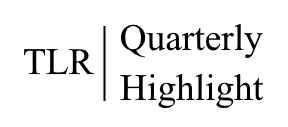


Every quarter the editorial board of the Trust Law Review highlights a emerging estate planning or trust strategy that will likely have a significant impact on estate and trust law.
This quarter we have selected the strategy of a seller-selected trustee in an IRS Code, Section 453 installment sale trust transfer first published by Michael George of Opes Trust.
Seller-selected DST Trustees To Save 1.5% Of DST Trust Balances Annually
Trust Law Review Editorial Board, en blancIn his April 2024 white paper, Better Than A 1031 Exchange | The Commission-Free Deferred Sales Trust, Michael George, J.D. lays out a novel trust strategy with significant capital gains tax advantages to trust practitioners and their clients.
Relying on IRS Code, Section 453 and making use of non-grantor irrevocable trusts, Mr. George takes what trust practitioner nomenclature has labeled a "Deferred Sales Trust"1 (hereinafter, "DST") and has made it much richer by adding a seller appointed trustee.
A DST is a capital gains tax deferment strategy. Taking advantage of IRS Code, Section 453 (hereinafter, "Section 453") the seller takes installment payments in consideration for property sold to the DST. Instead of selling directly to a buyer, the property is sold to a non-grantor, irrevocable trust with an independent trustee with seller's desired beneficiaries.
The seller cannot take an installment agreement, and then benefit as a beneficiary him or herself. The only way the seller benefits directly from a legitimate DST is through the interest bearing installment payments. Typical DST beneficiaries include seller's pounce and children.
With a qualified Section 453 installment sale the seller does not pay capital gains tax until installment distributions are made. The installment term must be within the seller's IRS expected lifespan. And to qualify for an installment sale, at lease two payments must be made to seller, one of which must occur after the fiscal year of the property sale to the DST.
The IRS will allow up to five million ($5,000,000) of any note balance taken on a Section 453 sale to be deferred tax free. Interest will be due to the IRS for any capital gains tax liability above five million in proceeds, unless another tax strategy is applied to the excess.
The economic benefits should become clear to trust practitioners and their investor clients. The compounding interest or ROI on retained taxes will be highly significant with the potentially decades-long DST term. A seller, for instance, taking two payments in the last two months of his or her IRS estimated lifespan will allow the DST to reinvest and build a fortune in compounding returns, dwarfing even the capital gain of the original sale, to be enjoyed by seller's DST beneficiaries - a compounded fortune otherwise lost without a capital gains deferment strategy.
Section 453 has advantages over IRS Code, Section 1031 like-kind exchanges (hereinafter, "1031 EXCHANGES"). With 1031 EXCHANGES investors must identify replacement properties of equal or greater value within 45 days, and close within 180 days. There is no such requirements with DSTs. The DST may retain cash proceeds for strategic investment timing, and may invest in any manner real estate investment alternatives.
Traditional DST practitioners use professional paid trustees to act as DST trustees, charging industry standard 1.5% of trust balances annually. And this is where Mr. George's unique strategy comes in. If the initial sale is made to a "related" person the IRS will treat any subsequent trust sale to any 3rd part buyer as a transaction triggering capital gains tax for the original seller.2 Selling to a non-grantor irrevocable trust that otherwise is not statutorily related to seller qualifies for Section 453 installment treatment.3
DST trustees may not be a direct ancestorial or descendant of seller, nor a spruce, nor a corporation, employee or trust controlled or related to the seller.4 But, as Mr. George points out, a trusted friend or in-law serving as a a DST trustee is statutorily permitted.
There are states which require licensed trustees. DST with lay trustees cannot have their situs in these states.
And, Mr. George advises to have a protector with authority to remove a DST trustee in light of any potential malfeasance.
Lay trustees have become commonplace in the U.S. with living trusts. A DST trustee may be no more demanding.
We congratulate Mr. George on his novel formation of DSTs with seller-trusted lay trustees. Trust clients taking advantage of this strategy will have enormous economic advantages over traditional DSTs with professional trustees annual 1.5% trust charges.
_____________________
1 Despite widely noted myths otherwise, there are no trademarkes for "Deferred Sales Trust". All applications for such trademarks have either been abandoned or denied for being merely descriptive. (https://tmsearch.uspto.gov/search/search-information)
2 IRS Code, Section 453(e)(1)(A)
3 IRS Code, Section 453(e)(1)(B)
4 IRS Code, Sections 318(a), 267(b)

We provide state and federal bar approved certified continuing legal education.
© 2012-24 all rights reserved • contact: TrustLawReview@gmail.com
301 West Grand Ave. #117 • Chicago, IL, 60654